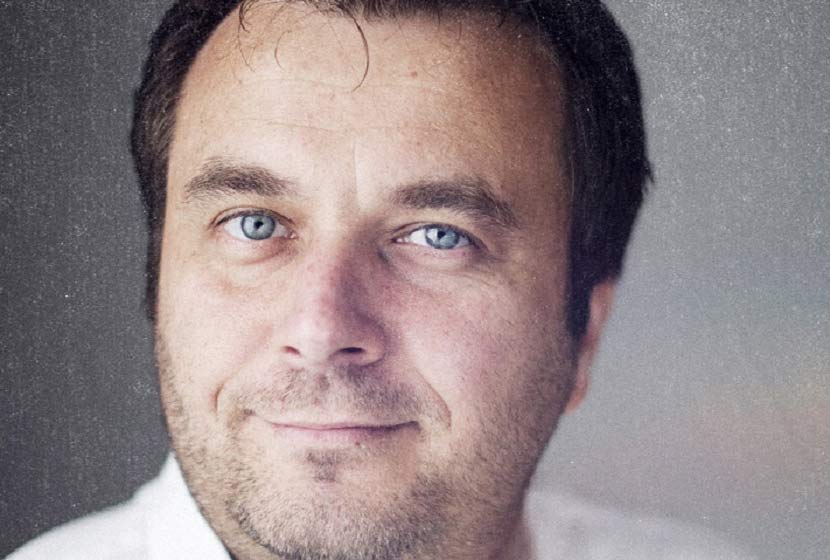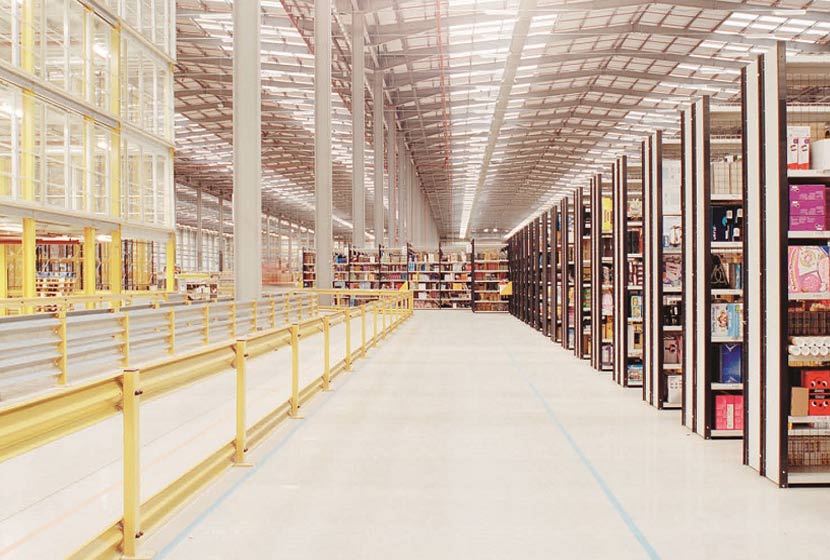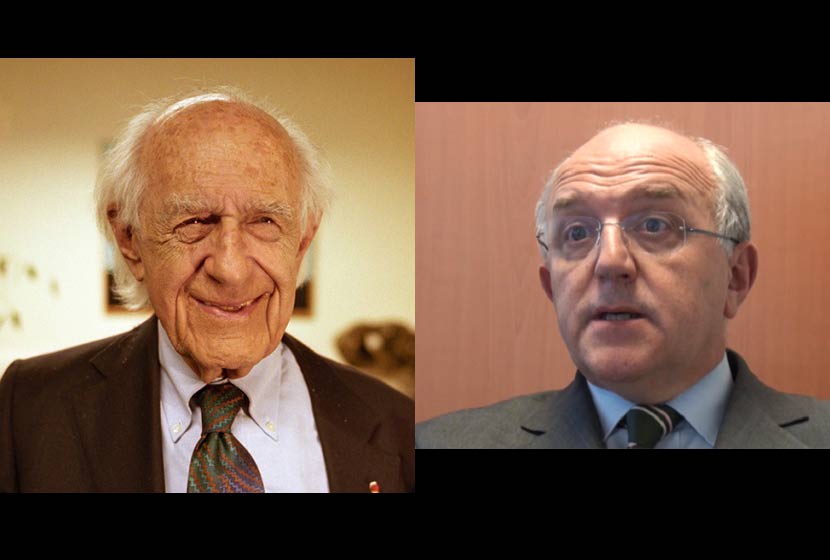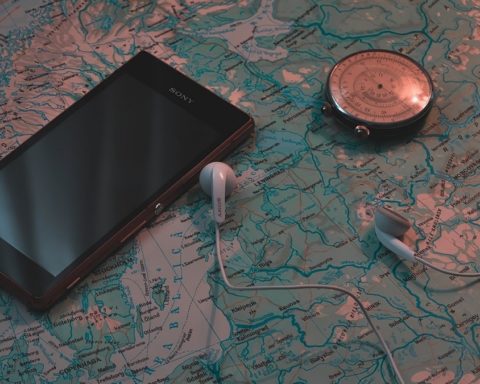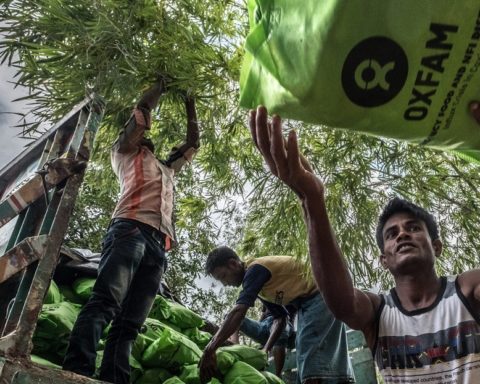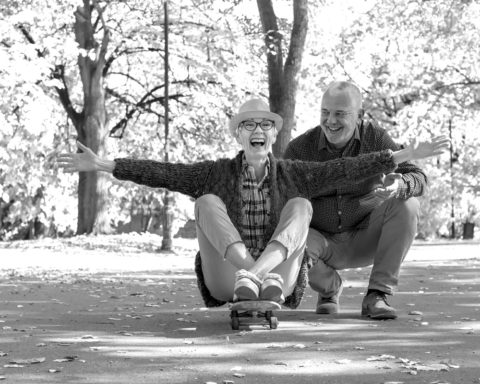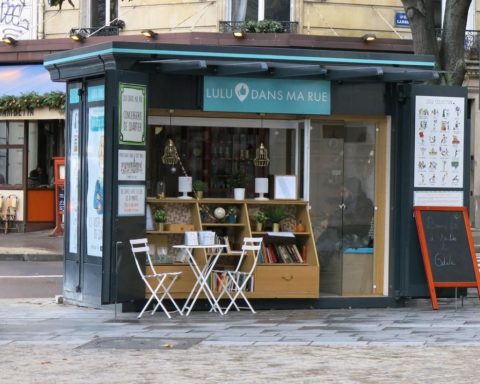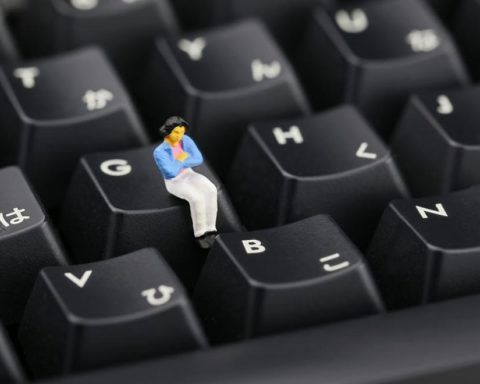Ça me regarde, co-created by Arnaud Fimat and Ségolène Delahalle, is a cooperative (SCOP) whose vocation is to help companies develop their social involvement. It responds to a crying need for meaning on the part of employees and managers. They have developed a concept that brings together associations to carry out solidarity projects with company employees and managers. They are the leaders of solidarity projects in France and their ambition for tomorrow is to create a network of companies involved in solidarity. Meet them.
![]() Can you tell us who you are? Your background, what led you to create this is my business?
Can you tell us who you are? Your background, what led you to create this is my business?
Arnaud Fimat : I'm almost 40 years old. I had a classic career start, I started at Thales where I had security related activities, then I continued for other large companies of this type. Then I joined Manutan, which is a large SME in the northern Paris region, and there I discovered the real estate environment.
With the Sustainable Development boom in 2007/2008, Manutan asked itself the question of what could be done to raise awareness among its staff. The boss had an interesting idea: instead of looking for a tenor of SD who would declare his solutions during the annual "mass", he wanted to create a participative team of employees to take up the subject. We set up a team of about ten people representing all the company's departments to think about what "Manutan and SD" could be, in addition to our working hours, i.e. evenings and weekends.
We obviously started by sorting waste, changing light bulbs, printing less, and all sorts of other eco-citizen acts until one day we wondered what we could do in the societal field.
We had noticed that this aspect was rarely dealt with by companies.
Motivated by this desire to act in a spirit of solidarity, we went to meet associations, because we had to "clear the ground", to imagine a project with one of them. This was a bit complicated because the association had a lot of fears and preconceived ideas about the business world, such as : " what are these capitalists doing to boost their image by doing a day of greenwashing? "
Then, we managed to work well with a first association leader by imagining a project together. Twelve people from Manutan, including Ségolène - co-founder of Ça me regarde -, went to test a project within the association. Ségolène, via internal communications, had disseminated information so that employees were informed about our project. The message was essentially as follows: "Who would like to take a day of RTT to share a solidarity commitment within an association? »
![]() Because it was in RTT form?
Because it was in RTT form?
AF Yes, which implies a real commitment from the employee.
So we twelve of us went to live this first experience, participating in a solidarity workcamp for an association committed to a social and solidarity mission.
Then something happened. Something really clicked, especially for Ségolène and me.
We repeated the experience the following year as part of the government-sponsored SD week and created a partnership with a new association. On that occasion, Manutan employees told us that they had understood our intention and that they did not want to do this once in a while but on a regular basis. This led us to step up the pace.
![]() What has created this craze?
What has created this craze?
AF We were surprised. We didn't expect the decompartmentalization that this allowed within the company. A forklift driver and the HR department kissed the next day and caused the astonishment of the rest of the employees; the other forklift drivers said: "but whose side are you on? The boss's side or ours? - Why are you kissing him? - She's the one who taught me how to wallpaper yesterday. "
We have become aware of how extraordinarily effective these worksites are in terms of cohesion. It allows us to look at others with new eyes and to discover ourselves as well, revealing talents and resources in this provision of a day at the service of a societal or solidarity project.
So we came up with the desire with Ségolène to dedicate ourselves to this type of action. We resigned together from Manutan and we co-created from scratch. We chose the form of a cooperative, a scop, because we wanted to set down on paper the perimeter of the company we wanted to create. This would allow us to meet our objective of being profitable and making profits to pay ourselves and invest.
![]() What is the purpose of "It's my business"?
What is the purpose of "It's my business"?
AF : We offer "turnkey" days of solidarity in three possible formats. The classic seminar format: instead of go-karting, tree climbing and other team building activities, Ça me regarde takes people to Emmaus, the Resto du cœur, Secours populaire or a nature site to collect rubbish or fight against an invasive plant.
The second format is the "historical" format, i.e. RTT. We propose to a company to propose within the framework of the RTT one or more days dedicated to social and solidarity work camps. With GMF we have set up six days over the year and with Macif four days a year.
The enterprise proposes, the employee disposes. The personnel register and make a commitment by getting involved alongside associations.
The third format is more like a training course, because the immersion of employees, especially in the environment of great precariousness, is a way to break down the masks and create moments of authenticity, which are rare in companies.
We use this immersion to work on team cohesion, stress, emotions, leadership. This happens once people have overcome their differences and found a meeting place beyond hierarchies.
Because when you go to "help" the companions of Emmaus, you very quickly understand, contrary to popular belief, that it is the employees who are going to take a lesson in life. Indeed, at Emmaus, there is no employment contract, there are 17 nationalities, 55 languages and everything works without a framework. And why is that? The values base is so strong that it only works on values. And in the company where there are a lot of frameworks and rules, there are more dysfunctions.
During these seminars we draw parallels between the two environments and encourage participants to learn from them.
![]() What does this "work" bring you?
What does this "work" bring you?
AF For Ségolène and me, and more recently with Cyrielle, who is now developing Ça me regarde à Lyon, these days bring us a lot of happiness.
Every day we open our eyes, our packaging and blinkers fade away, and it happens without us. Many participants commit themselves after the workcamps as volunteers in this or that association.
We held a seminar for high-potential employees of a Total subsidiary, CCP Composite, and at the end of the day, the manager told us, "It's the first time they've talked to each other. He had been organising all kinds of seminars for seven years and this is the first time they've really talked to each other. »
Immersion brings natural empathy. It leads to the low posture, that of humility and not the high posture of the expert or the knower.
And we hadn't imagined these elements at the beginning, it just came up as we went along.
Therefore, we are excited to come to the company. And as far as I'm concerned, I don't feel like working. We divided our salaries by 4 or 5 with Ségolène but we are living fully; we are filled every day with these experiences. We are happy with what we do. We're not in the business of selling our business.
Together with our clients we co-create formats that meet their needs and make sense for the company and the association. We don't have a catalogue of solidarity building sites, we work with the client who wants to work on a problem, the adapted answer. It's up to us to understand what the client wants his teams to experience and behind it, we co-create the day. We involve him in the preparation, the elaboration and sometimes even the participation.
In this way we operate in a tripartite way: the association, the company and Ça me regarde.
![]() What is your business model?
What is your business model?
AF : For the moment, we are earning little, we are at minimum wage, AND we are happy. We want to push the project further. Especially when we hear that people who do hours of data processing on Excel take days off from their leisure time to go and sort clothes at Emmaus, that means we need to go even further. Çworked very well by recommendation.
We have already met 1500 people who have participated in our days or used their RTT time with associations.
We've been around for three years. The first year was used to make us known, the second we carried out building sites and for the third year, we secured the loyalty of returning companies. Our turnover is modest but growing.
![]() People need to feel useful, need to make sense of things...
People need to feel useful, need to make sense of things...
AF Yes, it's the sense of purpose that is lost in business and we see how we can help restore it. Many people find it very difficult to project themselves into their company's project as it is sometimes so disconnected from reality.
And we put them through such simple things. The real luxury is simplicity, Picasso said. We make them experience simple encounters.
For example: we held days with the GMF and the CSR manager was there to see if everything was going well, without participating. I am trying to connect her with a companion from Emmaus, in particular to get him to talk about his life. And he explains to her that he begged for 27 years in front of the Paris courthouse and that those were the best years of his life and that he doesn't understand how she manages to work cooped up in an office. He explains to her that he had his pockets full, that he was getting a lot of money, and above all he felt alive.
And to witness this observation, this difference between her, who must earn her living very well, albeit with a somewhat dull look, and telling him how happy he had been with 15 euros a day and who was shining with life, with his 27 years on the street, not knowing where he was going to sleep at night, the contrast was impressive and the effects on everyone.
Beneficiaries of associations, particularly at Emmaus, tell us how happy and lucky they feel to have the life they have. And we are convinced that everyone can be inspired by each other. This supportive environment can inspire the company on many subjects.
One experience really changed me: we organized a day for the management committee of a company, and during the debriefing, around the topic: "what is a team?", there was a sharing of impressions and contacts such as: "in the morning, they say hello to each other. What about us? ». Maybe a team can start there. These observations open up authentic dialogues between the participants. And the HRD was not saying anything in his corner. I was with a man who came from the Balkans on foot, he left his wife and children there, I spent the day in the rain with him, we're really not from the same world; he stinks, it was really an unlikely meeting and then he explained to me the scrap metal and all of a sudden he has a whiff of emotion, he explains in tears and he says to his boss: "maybe we too could learn to give a second chance". I'm still shivering. Six months later his life changed, he showed himself vulnerable in front of his colleagues, he started crying and now his door is open.
Ségolène and I realize it's my business at times like this. That's why I get up.
Obviously the workcamps must be useful to the associations, but beyond the visible part of the iceberg, it is above all the effects of improbable (3rd generation) encounters that we are aiming at. This is the most important thing.
And that's what people need, to reconnect to simple things like the essentials experienced during encounters.
![]() What would be the quote that inspires you, that characterizes you?
What would be the quote that inspires you, that characterizes you?
AF Let us be the change we want for the world. "Gandhi.
This makes me want to relate a recent example. It is the giant Coca-Cola donation drive. We had a room for ourselves for a week, people from the association came to tell us what the donations were going to be used for, on Friday a dozen Coca-Cola ambassadors came to drop off the donations in the association and this created an extraordinary buzz within the organization.
Helping someone who is poorer than you are creates relationships, everyone brings something and it allows you to share and experience common values and that is what people need.
This creates links between employees other than the payroll. That everyone can give, it builds bonds of quality and responds to the need for meaning.
![]() Like a cloud of tags, what are the key words that characterize Ça me regarde?
Like a cloud of tags, what are the key words that characterize Ça me regarde?
AF : Meeting, solidarity, joy, surprise, exchange, day, astonishment, real life and more!
![]() How do you see yourself in five years?
How do you see yourself in five years?
AF : As far as I am concerned, I would like to push an academic and field reflection on what do people come looking for in these solidarity days? The subject of the meeting fascinates me.
I would like to sell meetings to companies and not just a useful day in and for an association. Today we are communicating on the visible part of the iceberg, but the invisible and essential part is the meetings.
![]() And that's my business in five years?
And that's my business in five years?
AF : I would like us to become the reference for solidarity shipyards in France. To have created between all the companies and participants a movement of involved companies.
![]() Is there anyone who wants to join you?
Is there anyone who wants to join you?
AF Explain: Explaining it to companies is very complicated. If the day goes well, we are very self-effacing, everything is done beforehand in the preparation and some people don't see us. For those who have understood our concept, they want to be volunteers and ask us how to help.
![]() What is the impact on your personal lives?
What is the impact on your personal lives?
AF None. Certainly a drop in salary, I take pride in having a decreasing salary curve and in having regained some sense.
And my wife said, "If we have to sell the house for It's my business, we'll sell the house. "It's a project that carries the family.
![]() What would you like to add beyond these questions?
What would you like to add beyond these questions?
AF : Given the evolution of society, what I am convinced is that if all companies were to do this, then it would really be possible to improve society and the life of the company.
The effect in the companies that have engaged in these solidarity projects is that communication and cohesion have improved among employees. They feel better. Our projects promote both well-being and cohesion.
Everything has changed in my life, my suits are in the closet, I'm going to see the executives in sneakers! I am me! Full with envy, passion, enthusiasm and I devour life!

